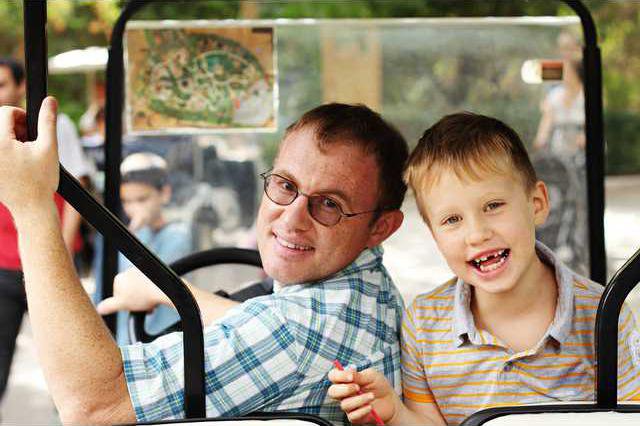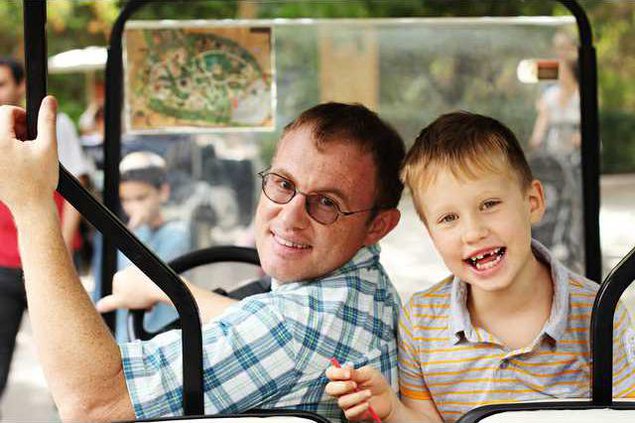Autism rates jumped from around 1.25 percent to 2.2 percent in recent data released by the Centers for Disease Control and Prevention, but researchers were quick to note the difference reflects a change in categories, not a sudden spike in autism.
Instead, the change reflects a juggling of distribution among categories along the autism spectrum, Dr. Glen Elliott said to Tech Times' Ted Ranosa, though it does reflect a new consensus that researchers have previously underestimated the challenge.
The good news is that people all along the autism spectrum have options for schooling, employment and societal contribution that would not have been available 40 years ago.
Arianna Skibell noted on the Hechinger Report this week that "a growing group of educators see technology work as an ideal field for some adults with autism and hope that tech can provide a career path and a means to financial security," even as employers begin to see the potential of autistic people as solid employees, "many of whom have strengths that lend themselves to working well with technology, such as being able to stay focused for long periods of time and to perform repetitive tasks with accuracy."
"Some critics, however," Skibell wrote, "say this push could pigeonhole people with autism, focusing them too much on one interest while ignoring other potential career fields."
This year, Microsoft announced a new program to hire people with autism. The initiative was announced by Mary Ellen Smith, a corporate vice president who has a son who has autism.
"Its simple," Smith wrote. "Microsoft is stronger when we expand opportunity and we have a diverse workforce that represents our customers. People with autism bring strengths that we need at Microsoft, each individual is different, some have amazing ability to retain information, think at a level of detail and depth or excel in math or code. Its a talent pool that we want to continue to bring to Microsoft!"
Robert J. Szczerba at Forbes recently invited Temple Grandin, an animal science professor at Colorado State University and one of the most famous autistic Americans, to outline the best career paths for people who have autism.
"Grandin tends to break down job categories into two groups," Szczerba wrote. "(1) individuals with strong visual / spatial learning skills or visual thinking, and (2) individuals who are not strong visual thinkers who, nevertheless, may be strong at such skills as mathematics, music, or fact memorization."
Grandin outlined the best jobs for each type of person. For the visual group, she suggested equipment design, computer repair, website design, computer graphics or animation, auto mechanics and drafting.
For nonvisual thinkers, she suggested computer programming, engineering, laboratory tech, statistics, mathematics or data entry.
Instead, the change reflects a juggling of distribution among categories along the autism spectrum, Dr. Glen Elliott said to Tech Times' Ted Ranosa, though it does reflect a new consensus that researchers have previously underestimated the challenge.
The good news is that people all along the autism spectrum have options for schooling, employment and societal contribution that would not have been available 40 years ago.
Arianna Skibell noted on the Hechinger Report this week that "a growing group of educators see technology work as an ideal field for some adults with autism and hope that tech can provide a career path and a means to financial security," even as employers begin to see the potential of autistic people as solid employees, "many of whom have strengths that lend themselves to working well with technology, such as being able to stay focused for long periods of time and to perform repetitive tasks with accuracy."
"Some critics, however," Skibell wrote, "say this push could pigeonhole people with autism, focusing them too much on one interest while ignoring other potential career fields."
This year, Microsoft announced a new program to hire people with autism. The initiative was announced by Mary Ellen Smith, a corporate vice president who has a son who has autism.
"Its simple," Smith wrote. "Microsoft is stronger when we expand opportunity and we have a diverse workforce that represents our customers. People with autism bring strengths that we need at Microsoft, each individual is different, some have amazing ability to retain information, think at a level of detail and depth or excel in math or code. Its a talent pool that we want to continue to bring to Microsoft!"
Robert J. Szczerba at Forbes recently invited Temple Grandin, an animal science professor at Colorado State University and one of the most famous autistic Americans, to outline the best career paths for people who have autism.
"Grandin tends to break down job categories into two groups," Szczerba wrote. "(1) individuals with strong visual / spatial learning skills or visual thinking, and (2) individuals who are not strong visual thinkers who, nevertheless, may be strong at such skills as mathematics, music, or fact memorization."
Grandin outlined the best jobs for each type of person. For the visual group, she suggested equipment design, computer repair, website design, computer graphics or animation, auto mechanics and drafting.
For nonvisual thinkers, she suggested computer programming, engineering, laboratory tech, statistics, mathematics or data entry.








